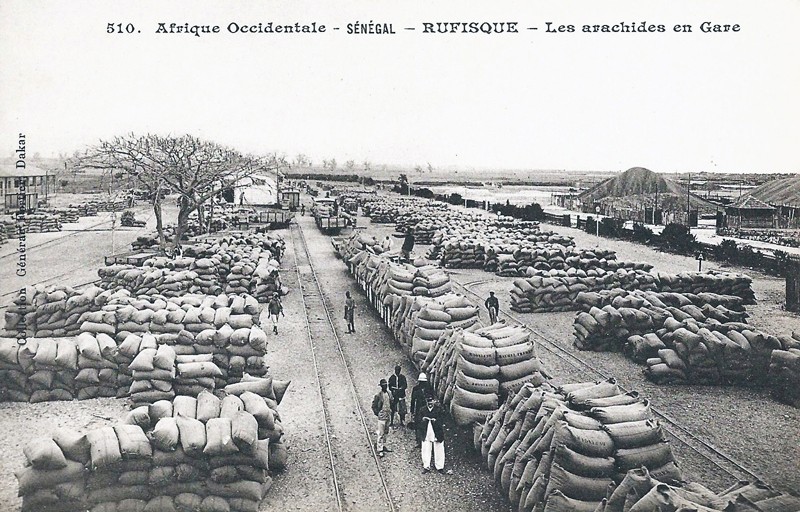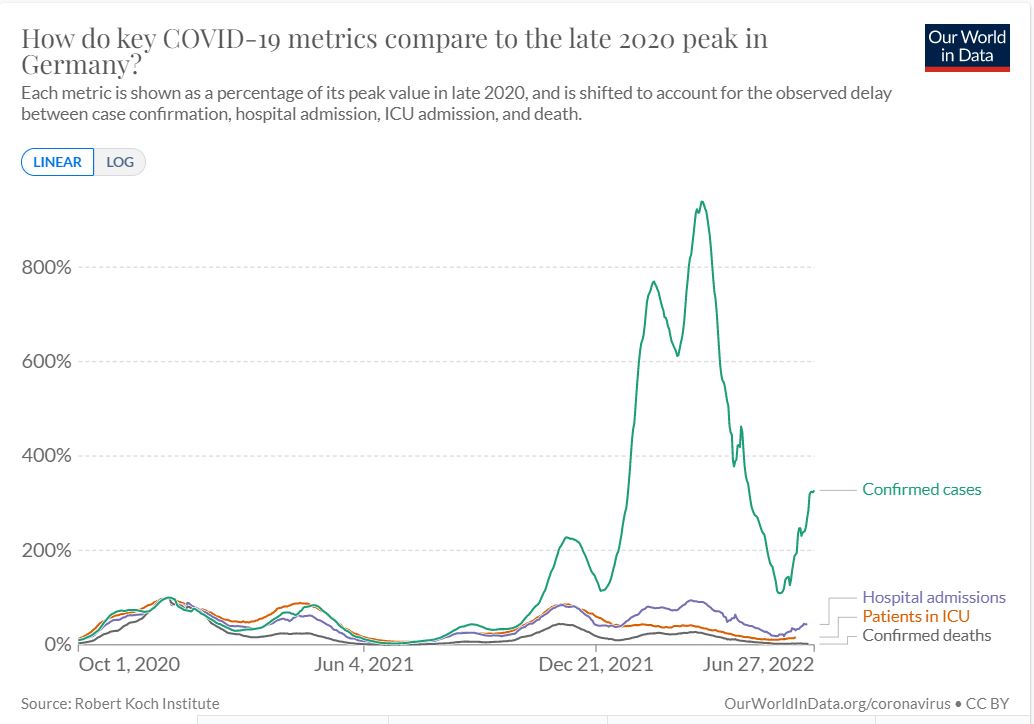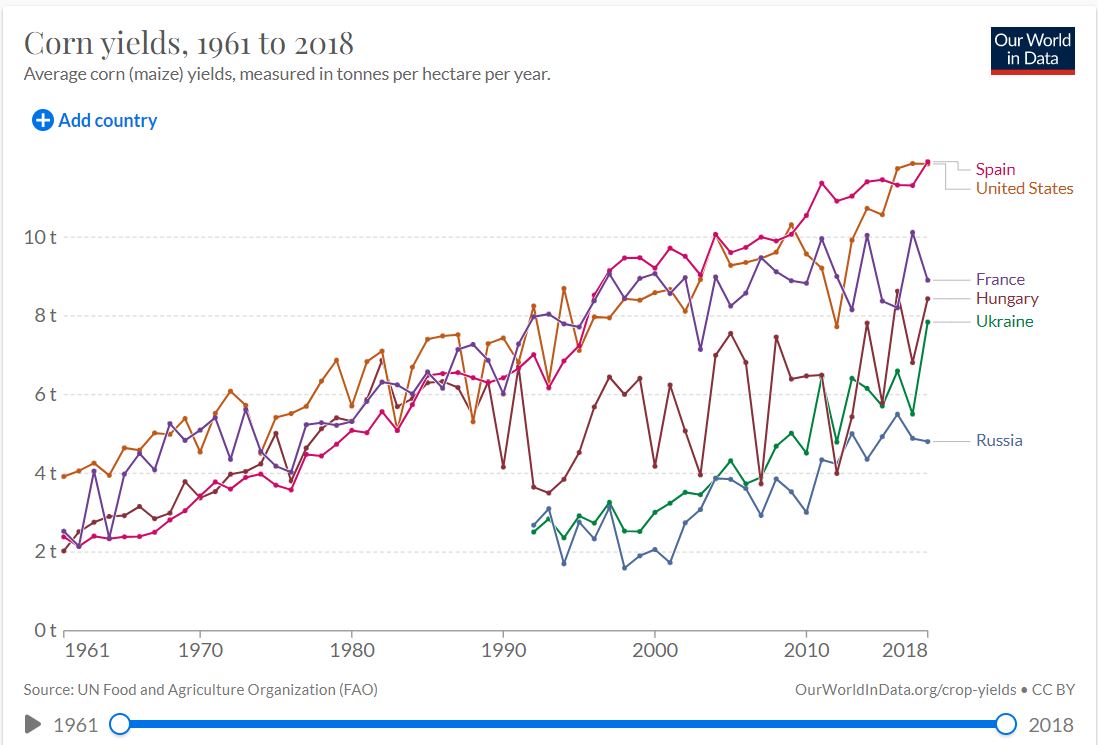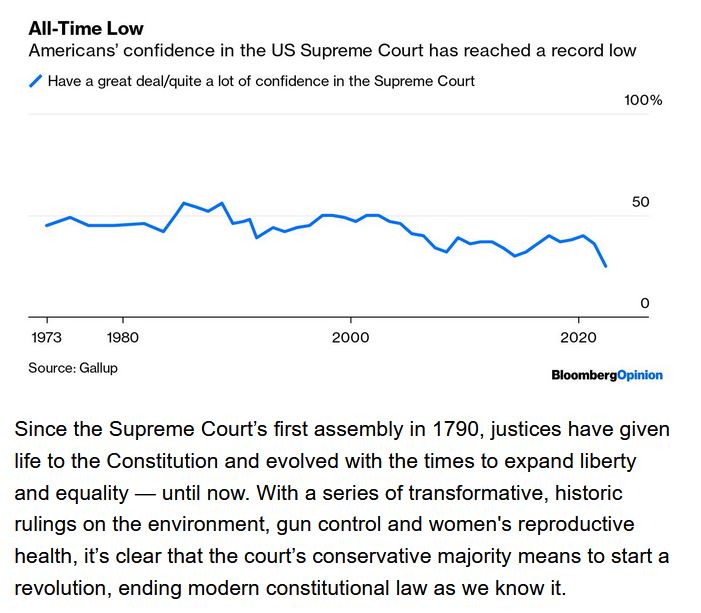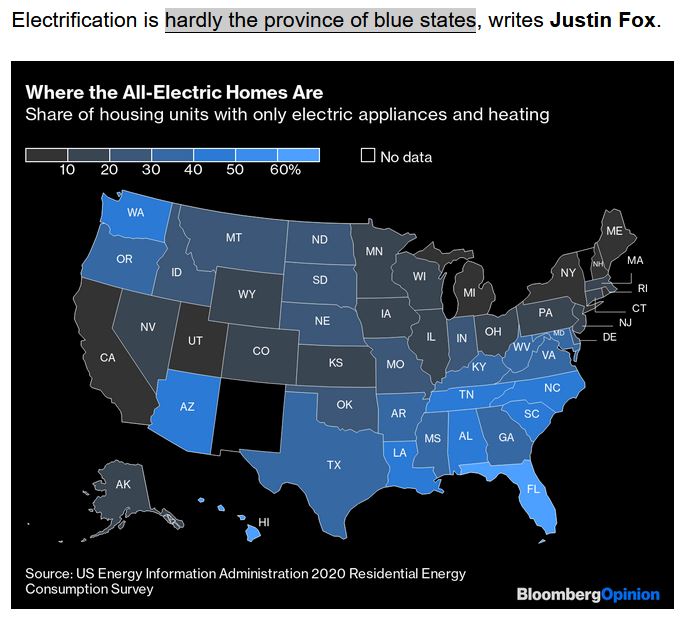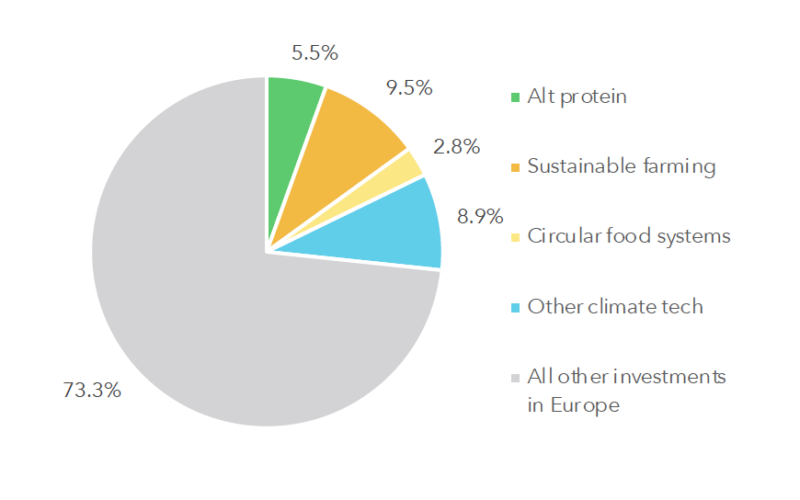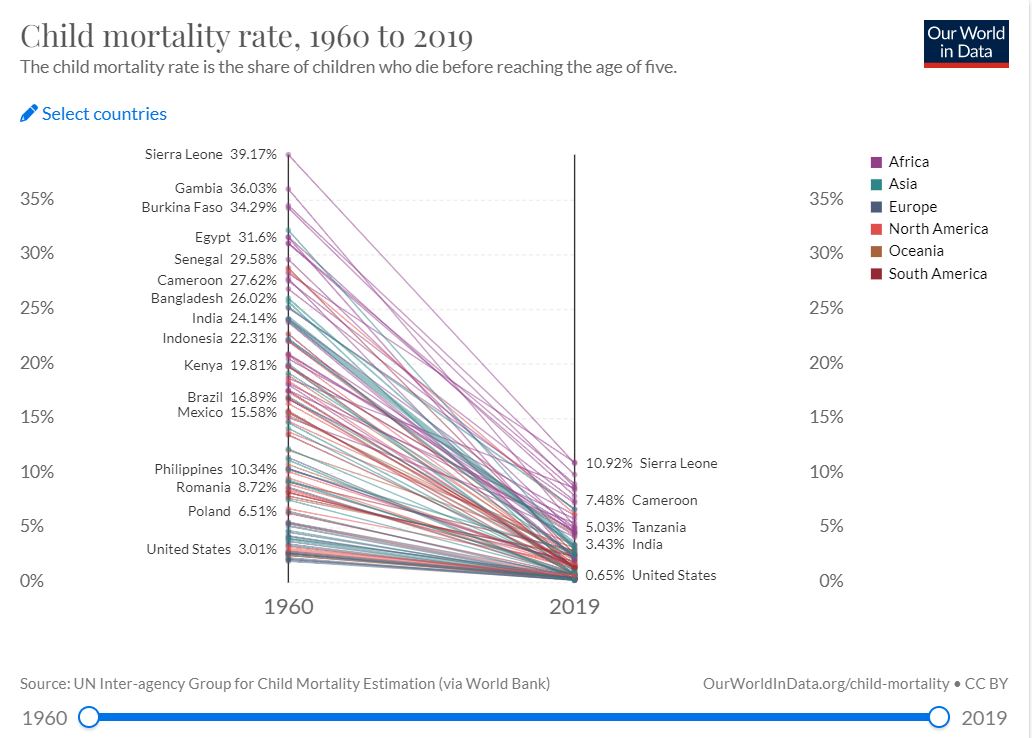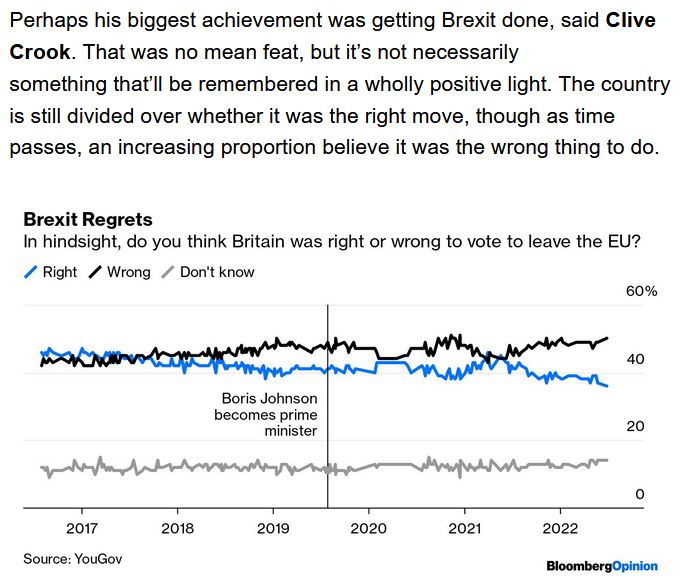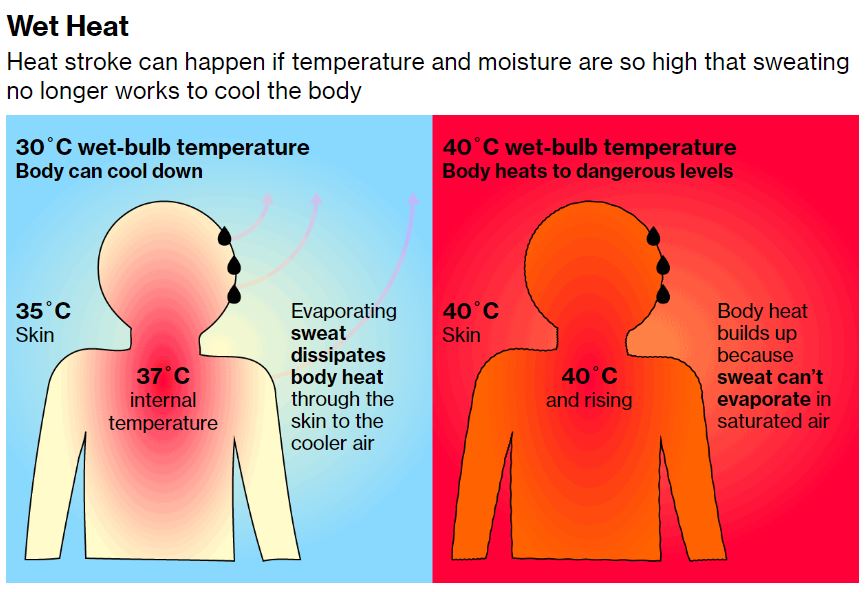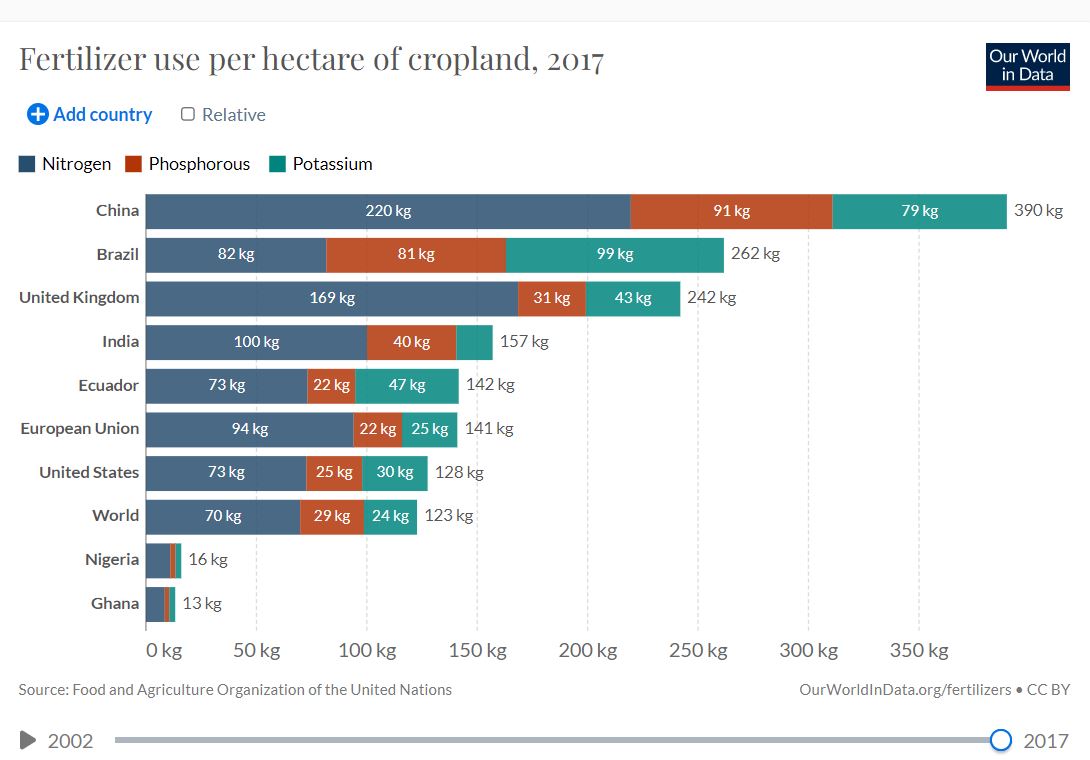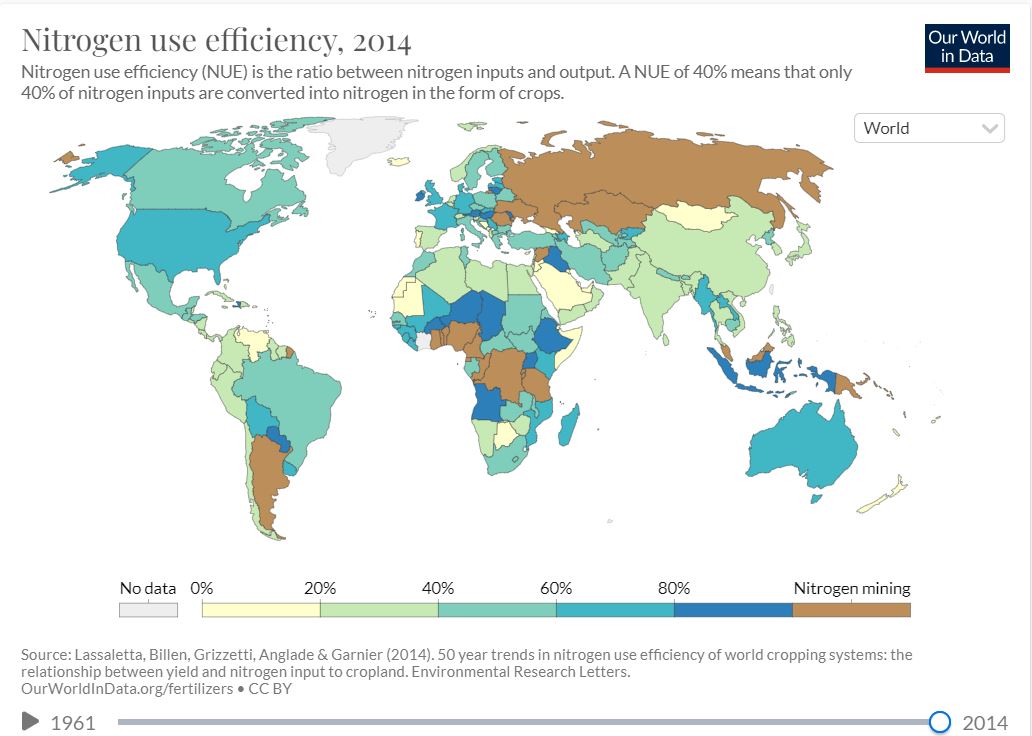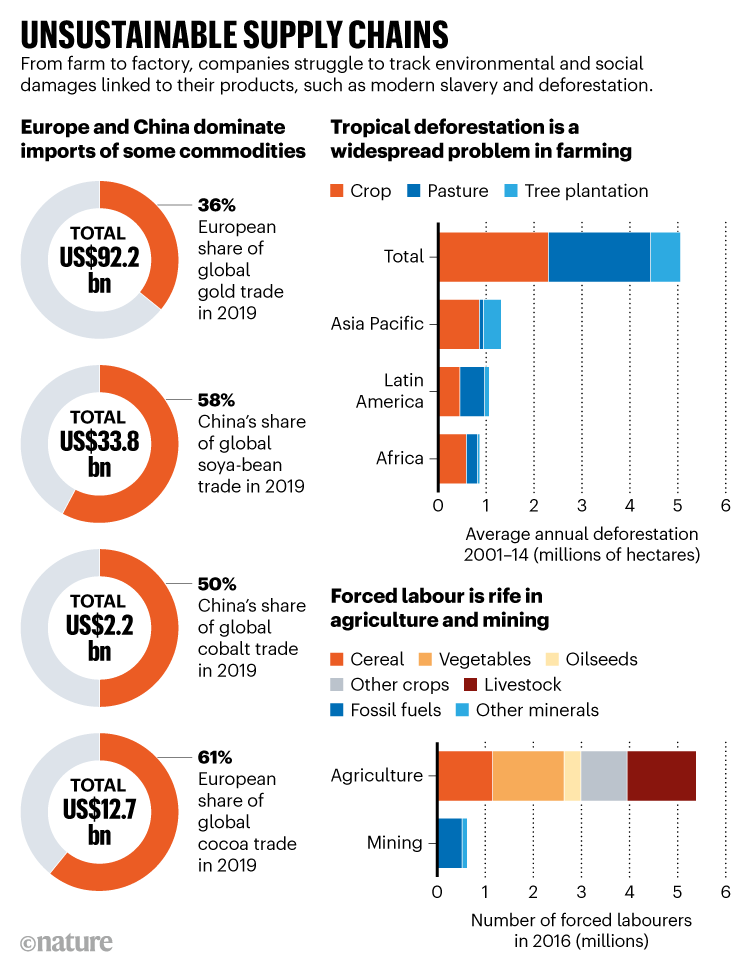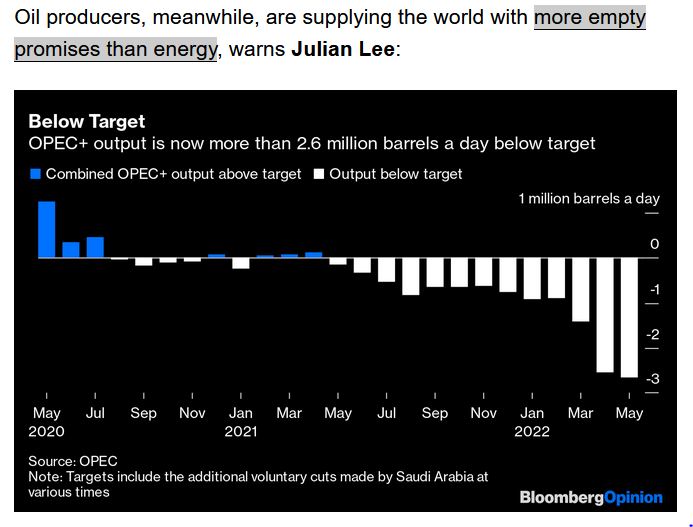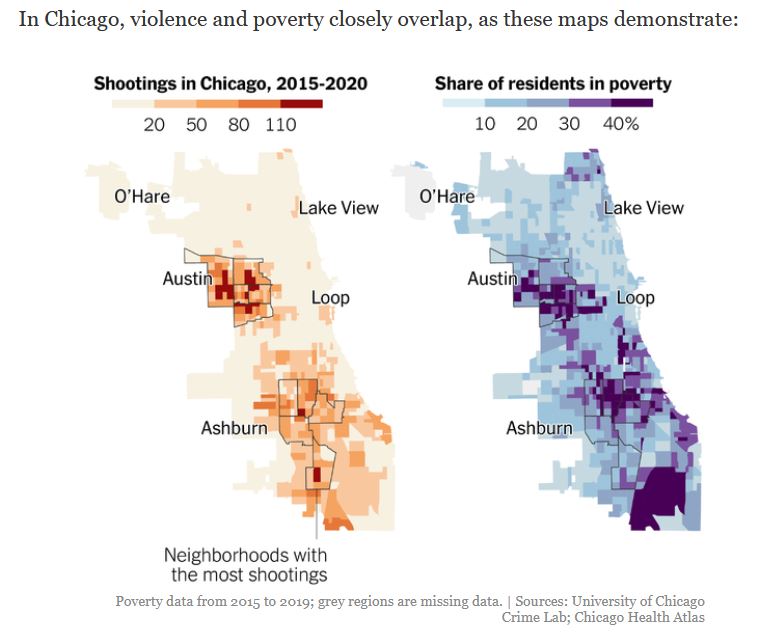|
You
can also view the message online
|
||||||||||||||||||||||||||||||||||||||||||||||||||||||||||||||||||||||||||||
 Châtenay-Malabry (FR - 92290), July 18, 2022 EFITA newsletter / 1048 - European Federation for Information Technology in Agriculture, Food and the Environment The informatique-agricole.org site offers you the possibility of subscribing the RSS feeds of its two newsletters See RSS feeds to implement to ensure that you continue to receive this newsletter To unsubscribe this newsletter, please contact me directely: guy.waksman(a)laposte.net if this link Unsubscribe does not work. 
To correspond with me (GW), please use this address: guy.waksman(a)laposte.net To subscribe the efita newsletter (please ask your friends and colleagues to test this link) Efita Newsletters subscription Before computers: Ursus C 451 (Pologne, 1954-1959) Weekly newsletters about ICT in Agriculture in English and French Both newsletters have around 14000 subscribers. >>> Last weekly EFITA Newsletters in English (created in 1999) Efita Newsletters >>> Last weekly AFIA Newsletters in French (created more than 20 years ago in 1997) Afia Newsletters >>> Statistics for the last efita newsletter >>> Last issue of the afia newsletter >>> Last available satistics for the afia newsletter How the peanut trade prolonged slavery (about French colonial past – GW) In Slaves for Peanuts, environmental journalist Jori Lewis reveals how French colonizers in what is now Senegal violently promoted the perpetuation of slavery long after it was purportedly outlawed, to keep peanuts and peanut oil flowing. Reviewer and Nature reporter Amy Maxmen writes that the book is bolstered by its use of oral histories and the lyrics of griots — singers revered as historians and poets in West Africa — as sources.
Osny, Lavoir et Petit Moulin (moulin de la Roche), 1884 (Détail), par Camille Pissarro
AquaSpy, Intelinair Join Global Ag Tech Initiative Alliance North America The companies join a group of leading organizations committed to advancing modern crop production through wider use of technologies. See globalagtechinitiative.com Precision Biocontrol Biological controls, aided by new precision technologies, are reaching new heights in the field. See globalagtechinitiative.com Big Nut-Tree, the Frost at Eragny, 1892, by Camille Pissarro -
How did we see the future yesterday?? See the incredible collection developed by Alain Fraval Valley Irrigation Completes Its First North American Ag Solar Installation in Partnership with Farmers National Company The installation in south-central Nebraska will provide sustainable power to the landowner by efficiently converting the sun's rays to clean energy. See globalagtechinitiative.com Urban Crop Solutions, Mayer Planting Systems Join Forces for Indoor Farming Germany-based Mayer is a global supplier of automation solutions for substrate preparation and filling and handling of pots. See globalagtechinitiative.com Study: As Ag Economy Shifts, So Does Technology Use By U.S. Ag Retailers Latest Purdue-CropLife survey shows shifting technology use, concurrent with the dramatic swings in the prices of agricultural products and in the costs of growing crops. See globalagtechinitiative.com Cueillette des pois, par Camille Pissarro
FutureFarming.com > Ekobot proves effective in removing weeds in onions The Ekobot is an effective aid in the battle against weeds in onions. That is the main conclusion of a pilot project with the weeding robot, which has been carried out recently in the Netherlands. Despite this, Dutch onion grower Gijs Krol, who tested the Ekobot, did not manage to save on his herbicide use. > News: Free weather forecast for smallholder farmers US non-profit organisation Precision Development (PxD) is building a free weather forecast product for smallholder farmers in Pakistan and India. The service will be launched in phases. > Article: Bungulla Farming reaps the benefits of on-farm data Around 60% of the decisions on the farm of Australian grower Brad Jones are data driven. He is not afraid his data will be used for the wrong purpose. > News: Cellestial E-Mobility presents India’s first electric tractors Startup Cellestial E-Mobility has presented India’s first electric tractors. The company from Hyderabad has developed three tractors, ranging from 27HP to 55HP and plans to sell its e-tractors within three months. > News: ‘Local trials autonomous vehicles in Australia crucial’ The Victorian Farmers Federation (VFF) calls on state and federal governments in Australia to incentivise and streamline the processes for automated vehicle trials. > News: Video: Quirky robot imitates accurate hand weeding in line The Quirky robot must be able to weed as precisely as a human hand in the crop row. Even at high weed densities and when the crop or the weeds are still very small. See futurefarming.com Le jardin potager, par Camille Pissarro
$2bn tech-driven 'ag parks’ backed by India, Israel, UAE & US to tackle global food insecurity, AFN, by Jack Ellis India, Israel, the UAE, and the US have announced a collaborative project to establish “integrated agricultural parks across India” in order to address the mounting global food security crisis. Speaking at a summit of the four governments today, US President Joe Biden said the ag parks have “the potential to sustainably increase India’s food yields in the region [of] threefold in just five years.” The UAE is investing $2 billion into the project, which will be supported by “American and Israeli private sector experts,” according to Biden. Why it matters: Reuters reports that the ag parks aim to “bring farmers, processors, and retailers together using advanced climate technology to minimize waste, conserve water, and maximize crop yields.” Indian Foreign Secretary Vinay Kwatra said the ag parks will help reduce barriers for Indian exporters and harmonize food safety standards with trade partners. The ag parks will initially cultivate bananas, onions, potatoes, rice, and spices, he added. .../... See agfundernews.com Femme avec une brouette, par Camille Pissarro
Tillable partners with Evergreen Bank to expand digital lending for US farmers, AFN, by Jennifer Marston - Farm real estate marketplace Tillable will expand its digital loan platform to more US states, enabling farmers and growers in the Midwest region to apply for a loan digitally. - For the expansion, Tillable has partnered with Evergreen Bank, an Illinois-based chartered commercial bank with a national lending program. - Farmers, landowners and investors in Illinois, Minnesota, Wisconsin, Michigan, Nebraska, Missouri and Arkansas can now apply and be approved in a fraction of the amount of time of a traditional loan process. See agfundernews.com Comparison of Covid-19 waves in Germany Better yields with GM corn varieties in Spain as well as in the USA
How online marketplace Traders of Africa is breaking down barriers to pan-African agri-trade, AFN, by Lucy Ngige Uju Uzo-Ojinnaka thought that expanding her family import-export business from Nigeria to other countries in Africa. But her first deal with an entrepreneur illuminated the compliated and often convoluted nature of intercontinental agricultural trade. Uzo-Ojinnaka launched Traders of Africa in 2017 to simplify the process of connecting buyers and sellers of agricultural goods across Africa. Her focus in particular was ensuring that smallholder farmers, who often get short-changed in the agrifood supply chain, would have access to better pricing and markets. “We started mapping smallholder farmers and our idea was to encourage everybody to see the value in what they’re doing,” Uzo-Ojinnaka told AFN. “The big time farmers are very important, but so are the smallholders. So how do you ensure that they get value for what they do so that they continue to produce?” Traders of Africa operates an online e-commerce platform where suppliers can sell products, such as nuts and kernels, raw materials such as palm and coconut fiber, dairy and seafood, as well as farm machinery, construction materials, furniture, minerals and metals, beauty supplies among many more goods of African origin. The marketplace is used by suppliers in Rwanda, Uganda, Ghana, Kenya and Nigeria. The platform collects and analyzes the sales data to better understand who is buying what and from where. The data, says Uzo-Ojinnaka, “will be very important for governments and organizations in terms of showing what’s needed in different regions in Africa.” Traders of Africa earns revenue via commissions or markups of goods, but only after negotiating with sellers. ..../... See agfundernews.com Low Americans' confidence in the US Supreme Court
US All-Electric Homes
Europe needs more funding for food waste, circular economy startups, AFN, by Jessica Pothering Circular economy tech hasn’t made a lot of headway among European investors. But startups that are finding new uses for biowaste from agrifood and other sources are helping unlock €1.8 trillion ($1.89 trillion) in potential value on the continent. Every year, Europeans waste 88 million tons of food – that’s 173 kilograms per person. Startups like Olio, Too Good To Go, Oddbox, Babaco Market, KITRO, Zero-Gachis, and others are working to curb food waste through various downstream interventions. OddBox in the UK and Italy’s Babaco Market sell ‘wonky’ fruits and vegetables from producers – ones that are fit for consumption but not pretty enough for supermarket stocking. Also in the UK, Olio connects consumers to restaurants, supermarkets, and stores with surplus food that would otherwise go unused. France’s Zero-Gachis and Denmark’s Too Good To Go operate on similar models. Meanwhile, Switzerland’s KITRO and the Netherlands’ Orbisk make monitoring devices and software for businesses and consumers to track and prevent food waste. Food waste-focused agrifoodtech ventures raised $239 million in funding between them in 2021, or 2.8% of all agrifoodtech investment on the continent (see chart below.) The data was released in AgFunder and Invest-NL‘s Europe-focused ‘Climate Investing’ report, released as part of AgFunder’s Europe 2022 Agrifoodtech Investment Report. .../...
Femmes cousant, par Camille Pissarro
Brexit regrets???
Is conventional ‘industrialized’, technology-driven farming ‘destroying biodiversity’ as critics claim - or saving it? By Steve Savage, June 14, 2022 Well over 90% of food, produce and grains in the United States is grown on conventional farms. Critics stigmatize this intensive system as ‘industrial’ and claim that its focus on a few high yielding crops leaves it vulnerable to a “diversity crisis in the face of looming climate change challenges. For decades, this has been a familiar refrain in the environmental advocacy community, with the complaints with the introduction of genetically modified crops in the 1990s. In the late 2000s, the Union of Concerned Scientists posted a classic screed targeting “industrial agriculture” arguing in favor of what scientists now consider the least sustainable solution to the environmental externalities of intensive agriculture: small-scale farms. .../... See geneticliteracyproject.org Dry heat / Wet Heat
Media are key to achieving global food goals, by Reuben Quainoo, June 17, 2022 he media and writers are critical to achieving the global ambition of feeding the world by 2050 and restoring a million hectares of land, says an international journalist. Greater investments in agricultural biotechnology and food nutrition are also key to meeting that goal, said Markus Rediger, managing director of the LID Agricultural Information Center and former president of the International Federation of Agricultural Journalists (IFAJ). “We must unify and take action today for the future of agriculture and our planet,” he said. “With the challenges the world is facing in relation to achieving global food security and the exponential growth in population, GM technology will gradually become the order of the day and therefore there is the need for us to invest in developing capacity for GMOs.” GMOs may not be the only solution to feeding the world, Rediger told the recent Alltech ONE Conference, “but it is the best option the world has got now.” Agriculture is integral to ensuring sufficient nutritious food for all and enabling local economies and communities to thrive, he said. .../... See allianceforscience.cornell.edu Nitrogen use efficiency (NUE) is the ratio between nitrogen inputs and output. A NUE of 40% means that only 40 % of nitrogen inputs are converted in nitrogen in the form of crops - Our World in Data
How to enforce corporate due-diligence Tangled supply chains can make it difficult to enforce companies’ sustainability obligations in areas ranging from modern slavery to deforestation. Nine specialists in development economics, food systems and environmental policy set out six research priorities to support corporate due-diligence policies. “Voluntary pledges by companies to free their supply chains from unethical practices have been ineffective,” write the authors. “The evidence on these voluntary commitments says little about what shifts might happen under stricter mandatory measures.” Celebrities and agriculture: We have to work with them, by Michelle Miller, Farm Babe We’ve always known there has been a great divide between celebrities and reality for most Americans, but I didn’t imagine the disconnect would stretch into the realm of agriculture as deeply as it has. Conversations on food are all the rage now, whether it’s the new “hipster” restaurant opening up for some nice Instagram shots, the new diet trend, or worse, the new fear-mongering campaign. We’ve seen that celebrities tend to keep the conversations going, but rarely in support of modern agricultural practices. For example, have you seen that Kim Kardashian is the new spokeswoman for Beyond Meat? Just one of her advertisements likely reaches more people than I can educate in a month, and with over 320 million followers on Instagram alone, you know her endorsement didn’t come cheaply for Beyond Meat. Maybe you even remember Burger King’s disastrous commercial that I helped completely dismantle. It’s rare that you find a notable advertisement for real meat or one that puts agriculture in a positive light. They’re few and far between — at least since the Sam Elliot Beef It’s What for Dinner commercials that are now decades old now. I can think of many advertisements for organic, non-GMO, or other specific food labels, but rarely for conventional products nowadays. Why is there so much money being filtered into advertisements insinuating much the food in America is unsafe or of poor quality? The problem is influence. Money talks, right? Celebrities, who too often live completely outside of reality, can afford the unrealistic lifestyle diets, prepared by private chefs, and literally served directly to them on a platter. .../... See agdaily.com Paysanne buvant son café, par Camille Pissarro
Can We Feed the World on Marginal Land? By Stuart Smyth As the planet’s population continues its relentless march towards 10 billion, more food is going to need to be produced to securely feed everyone. Recently, we’ve seen just how fragile our food systems are thanks to war and supply chain challenges. It’s not likely war and other hostilities will end within the next few years, such that food can equally be distributed. Since the pandemic, it’s estimated that there are 140 million more people acutely food insecure in 2022 than in 2019. Every day, over 800 million people go without sufficient amounts of food. There are two ways that agriculture can directly contribute to reducing food insecurity, increase the amount of land used to produce crops or use innovative breeding technologies to improve crop yields on marginal lands. .../... See saifood.ca Pesticides Negate Benefits Of Fruit And Vegetable Consumption? No, by Cameron English - June 6, 2022 A recent study suggested that pesticide residues in fruits and vegetables could counteract some of the nutritional benefits of consuming said produce. Are the results anything to worry about? No, not even a little bit. The trace amounts of pesticides in food cannot harm you. Regulations set by agencies like the Environmental Protection Agency (EPA) tightly restrict how much of any given chemical farmers can utilize, thereby limiting the amounts we're exposed to through products purchased in grocery stores and restaurants. Simply put, your stomach would explode long before you consumed enough strawberries, for example, to suffer any ill effects from the insecticides used to protect the fruit from bugs. Studies challenging this conclusion occasionally show up in the literature, and reporters typically take them as an opportunity to tell a misleading story about the dangers of pesticides. The French newspaper Le Monde published a report in this mold just two weeks ago: “Regulatory authorities do not consider that pesticide residues in fruits and vegetables represent a risk to consumers, but scientists working on the subject generally disagree … This is seen, once again, in recent American research that has drawn some impressive conclusions … [T]hey are the first to suggest that the presence of trace amounts of pesticides on fruits and vegetables is capable of negating the health benefits of their consumption.” Let's take a closer look at the study, which in no way supports Le Monde's analysis. The fact remains that pesticides in food pose very little risk to consumers. .../... See acsh.org
Imagine the byproducts in the average day of an animal-rights activist, by By Michelle Miller, Farm Babe, June 21, 2022 Do you ever wonder how the other half lives? What does a day in the life of an animal-rights activist look like? I imagine it goes a bit like this: Just like everyone else they probably roll out of a bed lined with cotton sheets. They probably didn’t know that the cotton seed hulls and other cotton “trash” byproducts went to feed livestock across the nation instead of to waste in a landfill, but that’s OK as it’s not exactly common knowledge. Next, they probably brushed their teeth (or at least I hope they do) or took a shower. I bet they didn’t know that the glycerin in their toothpaste could have come from animal-fat sources, a byproduct of eating meat, or the biotin, keratin, or gelatin in their shampoo/conditioner was likely sourced from animals as well. Again, we’ll give them the benefit of the doubt. If they happen to wear makeup, we certainly won’t tell them that a large portion of brands utilize animal byproducts in their make-up products (even their nail polish). Even products that say “not tested on animals” likely were at some point in decades past. I bet they head to the kitchen for breakfast next? .../... See agdaily.com Regenerative Agriculture: Healthy Soil Best Bet for Carbon Storage Agriculture is the main driver of global deforestation and land conversion, and food systems account for more than a third of global greenhouse gas emissions, making it a major contributor to climate change. A new report by Europe’s National Academies of Sciences provides evidence that a transformation to regenerative agriculture holds promising keys to reducing climate risks while providing the growing world population with food and enhancing biodiversity. .../... See easac.eu Neonicotinoids and Integrated Pest Management (Update) .../... Despite these positive changes, Member States continue to use neonics by taking advantage of a legal loophole. At the same time, more evidence has emerged of their ecological and human health impacts with research demonstrating that their effects extend beyond fields of treated crops to include the broader landscape as well as marine and freshwater environments. .../... See easac.eu Low oil supply
Violence and poverty in Chicago
Farmer’s Daughter: What an EPA decision on atrazine could mean for growers, by Amanda Zaluckyj, The Farmer’s Daughter USA .../... As any farmer knows, weeds are a big deal and can drastically impact yields. Weeds grow faster than most food crops, and they monopolize resources in the field: sunlight, soil nutrients, water, and growing space. A study from Kansas State University found that uncontrolled weeds would result in economic losses totaling $43 billion annually in the U.S. and Canada. So managing weeds is an important factor in economic sustainability. There’s also an environmental impact. Herbicides help farmers adopt conservation practices like no-till and cover crops. Without them, farmers are forced to hire labor to do it by hand or use routine tillage throughout the growing season to combat weeds, options that rely on labor, increase greenhouse gas emissions, and result in soil degradation. And higher yields supported by herbicides means the world doesn’t have to develop new farmland in places like the rainforest; we can grow all the crops we need on the land we already use. By the way, consumers benefit from this too. In the U.S., shoppers save between $4.3 billion and $6.2 billion annually through lower prices for meat, eggs, dairy products, and ethanol thanks to atrazine and other herbicides. Thanks to the COVID-19 pandemic and Russia’s invasion of Ukraine, we all recognize how sensitive our supply chains really are. Seemingly small changes in one sector can have massive consequences down the line. The EPA’s decision on atrazine might seem like a small thing if it causes corn yields to dip. But we would see the ramifications from the availability of food to the cost of energy. See agdaily.com Mère Gaspard, Pontoise, par Camille Pissarro
A solution to the wheat shortage: genetically modified crops, by Terry Wanzekjune, 30, 2022 The world needs more wheat. In peaceful times, Russia and Ukraine supply more than a quarter of the world’s wheat exports. The war between them has contributed to shortages and inflated costs. Consumers in Bangladesh, Egypt, Israel, Turkey and other countries depend on what Russian and Ukrainian farmers grow. Yet war-related shortages have obscured a more basic challenge: Wheat farming has failed to keep up with the advances that have transformed production of other essential grains. I used to be a wheat farmer. At least that’s how I thought of myself in the 1980s and ’90s. Growing wheat made a lot of sense in North Dakota’s dry and cool climate. It was the state’s major crop for a long time. Today, however, I mainly grow corn and soybeans. My neighbors do too. According to the state agriculture commissioner’s office, planted soybean acreage exceeded wheat acreage in 2021 for the first time ever. We still plant wheat, but mostly because it works well in rotation with corn and soybeans rather than because of its intrinsic value as a commodity. .../... See globalfarmernetwork.org Récolte des pommes de terre, Pontoise, par Camille Pissarro
Logics Shmuel noticed his friend Avrum underneath a streetlight, searching for something on the ground. “What are you doing, Avrum?” “I’ve lost my keys. Please help me look for them...” A while passed with no success. “Avrum, where exactly did you lose those keys?” “I lost them in that alley over there.” Shmuel was dumbfounded. “So why are we looking here!?” Avrum looked over at his friend: “Because the light is better here!”
The distribution of this efita newsletter is sponsored by vitisphere.com Please, contribute to the content of your efita newsletter, and advertise your events, new publications, new products and new project in this newsletter. Without your support, it will not survive! Contact: Guy WAKSMAN E-mail: guy.waksman(a)laposte.net To read this newsletter on our web site See Efita The archives of this newsletter See Efita Do not miss the Virus Jokes in English and French About the EFITA mailing list You can use the efita moderated list (> 15000 subscribers) to announce any event / product / web site / joke (!) related to IT in agriculture, environment, food industry and rural areas. If you want to subscribe a friend, please fill in his form. If you do not wish to receive our messages, please fill in the following form... |


